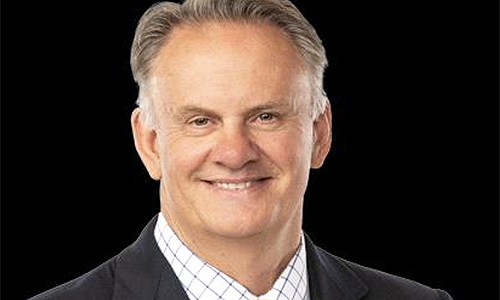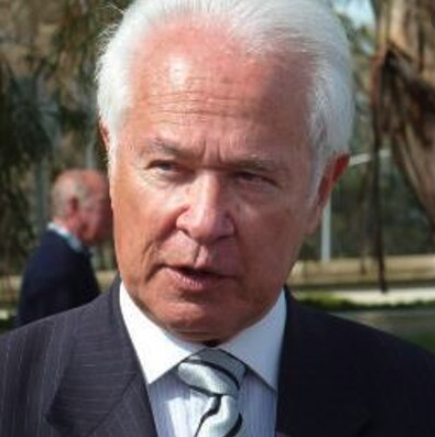
by DAVID FLINT – IT HAS been rightly said that Australians are a wise constitutional people.
They achieve what the politicians could not, “a nation for a continent and a continent for a nation”.
- When forced to make a choice, the Liberals choose the cause of social radicals over its the rank-and-file.
- The continued existence of both Labor and Liberals is endangered.
- Their primary vote has collapsed to the lowest levels ever seen in history.
Designed as a unique federal crowned republic, we are now one of the world’s half-dozen oldest democracies.
And despite the cajoling of the elites, their descendants refused to fall for the politicians’ republic.
MISMANAGEMENT
Nor are they likely to agree to the Voice, a constitutional monstrosity which will have absolutely no effect in removing the “gap” – a result of continued political mismanagement.
The rejection of that politicians’ republic revealed a fundamental division between the elites and the rank-and-file. That division is still there and worse, growing exponentially.
The 1999 referendum had pitted an over 50,000 rank-and-file, grass-roots army, Australians for Constitutional Monarchy, against most politicians, the mainstream media, Malcolm Turnbull’s fiefdom, a fabulously well-endowed republican movement (ARM) as well as other cosmopolitan, inner-city elites.
In the ACM command centre were a key group – Kerry Jones, David Elliott and others, as well as a close associate of the legendary BA Santamaria, the political strategist, Rick Brown.
As Victorian ACM director, Brown achieved extraordinary things.
Based on his deep appreciation of the fundamental issues facing the nation, this was not just luck. He demonstrated this in 2009 in a prescient and well-argued report against a free-trade agreement with Beijing.
His then unfashionable warnings have since come true.
In the republic referendum, Rick Brown devised a killer slogan to add to ACM’s already successful bundle of slogans. This was “Vote No to the politicians’ republic”.
No empty slogan, this was shorthand for the fact that the republic on offer was the only one in the world, or indeed history, where it would have been easier for a dictatorial prime minister to sack the president than his driver, without grounds, notice, or right of appeal.
The president would have been, and was no doubt intended to be, the PM’s puppet. The then-republican campaign director, Greg Barns, recently conceded that this was the KO punch that floored the Yes case.
Many Australians smelt a rat, and Brown’s description gave their fears real meaning.
Apart from meaningful slogans, good campaigns need depth. Among a small ACM library of referendum publications, Brown edited a key book of papers by over twenty of the nation’s leading thinkers opposed to the model – monarchists, republicans and neither – including Bill Hayden, Sir Harry Gibbs, Ted Mack and Sir David Smith.
This was the The No Case Papers, launched by Alan Jones.
With Victoria assumed the State most likely to vote Yes, Brown devised a strategy to take the enemy, bloated with money and over-confident from lavish mainstream media support, completely by surprise.
This was a strategy based on principle, applied at more than one level, something the ARM should have learned at the Convention.
The strategy worked, the No case prevailing nationally, in every State and 72 per cent of electorates, none inner-city.
In a recent interview on ADHTV, Brown reminded me that ACM’s strategy of concentrating in the regions and outer suburbs, where “the” republic was a “tenth-order” issue, proved correct.
INFECTED
Brown was speaking to his recent IPA essay, Politics in the 21st Century: A Gulf between Two Nations, in which he reveals how the elites have infected both major political Parties, Labor first.
Brown says one of the first politicians to see the problem of the elites after the referendum was Mark Latham.
In his 2002 Menzies Lecture at King’s College, London, Latham identified “two distinctive political cultures in Australia”.
He recognised that in the Republic referendum, “the further one moved away from the centre of the capital cities, the higher the proportion of No votes”.
While Labor was the first Party to fall to the elites, and has not constituted a working-class Party for many decades, the Liberals were slower to abandon their heartland – small business, farmers and the professions.
Keeping the Party together was in fact the principal reason for the Howard government holding the referendum.
As Bill Hayden warned the Queen, Paul Keating would use the republic as a wedge into the Liberal heartland.
So when the commentariat declared “the republic inevitable”, Liberal politicians everywhere jumped onto the bandwagon, with the ambitious, including Peter Costello, probably seeing this as a way to demonstrate brand differentiation from an older John Howard.
Alexander Downer – and then John Howard – realised the best way to reunite the Liberals was to let the people decide through a convention and a referendum. Much to Keating’s chagrin, this worked.
The republic no longer divided the parliamentary Liberals.
The referendum apart, Labor was first to fall to the elites.
To avoid this problem overtaking the Liberals, John Howard embarked on an intellectual operation of defining the Party as a “broad church” in which economic liberalism and conservative social policy successfully cohabited.
The Party still tries to straddle the two, but as Brown notes, when forced to make a choice, the Party chooses the liberalism of the elites over the conservatism of the rank-and-file.
So our two major Parties are competing to satisfy the inner-city elites to which most politicians belong.
This, in Brown’s view, will only ensure their demise.
FRAUD
Despite a massive diversion of taxpayer funds, over $50m, and favourable electoral rules unknown in most democracies (especially compulsory and preferential voting) and in my view, a system more open to fraud than most, Brown sees the continued existence of both Labor and Liberals as endangered.
This was demonstrated in the last federal election with their primary vote “collapsing to the lowest levels ever seen”.
As the aristocrat, Tancredi, observes in Giuseppe Tomasi di Lampedusa’s The Leopard: “If we want things to stay as they are, things will have to change.”
If the Parties want to stay in the two-Party system, they will just have to rebuild their bases.
Just what point is there in Labor and the Liberals suiciding by throwing themselves at the feet of the fickle and foolish inner-city elites?PC













Is a Government worth protecting when it lies to its people ??? ALP = CCP PLN = WEF.
Few things are more laughable than a monarchist squealing about ELITES…
To defend the birthright of an English royal…an elite member of an elite family at the pinnacle of an elite class structure.
Honestly, are you people really that stupid?
Can you really not spot the irony?
I can spot a stupid comment.